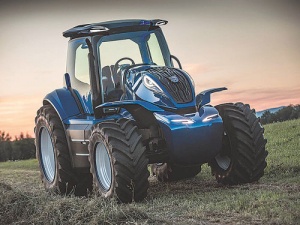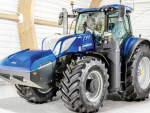Hybrid or electric vehicle (EV) makers had better mind their backs: the hydrogen fuel cell could still be in contention.
From an efficiency point these are at least twice as efficient as petrol or diesel powertrains, so only need half the fuel. But it seems that the biggest challenge holding the technology back is issues of safe storage and transport.
The technology might now have moved a step closer to commercial reality: Australia’s CSIRO has developed a membrane technology process that enables safe and efficient production of ultra-pure hydrogen by extracting it from ammonia.
“Hydrogen fuel cells can be fitted to a wide range of vehicles -- cars, tractors, ships -- but concerns remain about safety during storage and transport,” says CSIRO principal research scientist Dr Michael Dolan.
“Our technology allows extraction from ammonia that increased safety and had benefits in handling and storage”.
Dolan says to move a lot of hydrogen it must be in liquid form -- much more dense than gaseous fuels. In the case of hydrogen, this is difficult to achieve without resorting to very low temperatures; but ammonia (nitrogen and hydrogen) forms a liquid at mild temperatures and behaves much like LPG.
In practical terms, ammonia carries a lot of hydrogen; the challenge is to pull that hydrogen back out, and it’s now achievable with CSIRO’s new membrane technology. From a safety aspect, ammonia suits transport and storage because it burns slowly and is hard to ignite.
Before long, says Dolan, fuel cells will be used in all forms of transport including tractors. For example, New Holland’s hydrogen tractor is reckoned likely to be on the market within three years.
He says CSIRO is also researching solar energy, bio-mass and other renewable sources and is making ammonia production more efficient -- the latter having implications for fertiliser production.
And there is new interest in straight ammonia as a substitute fuel for diesel in tractors, a process trialled in the US with reasonable results.



















